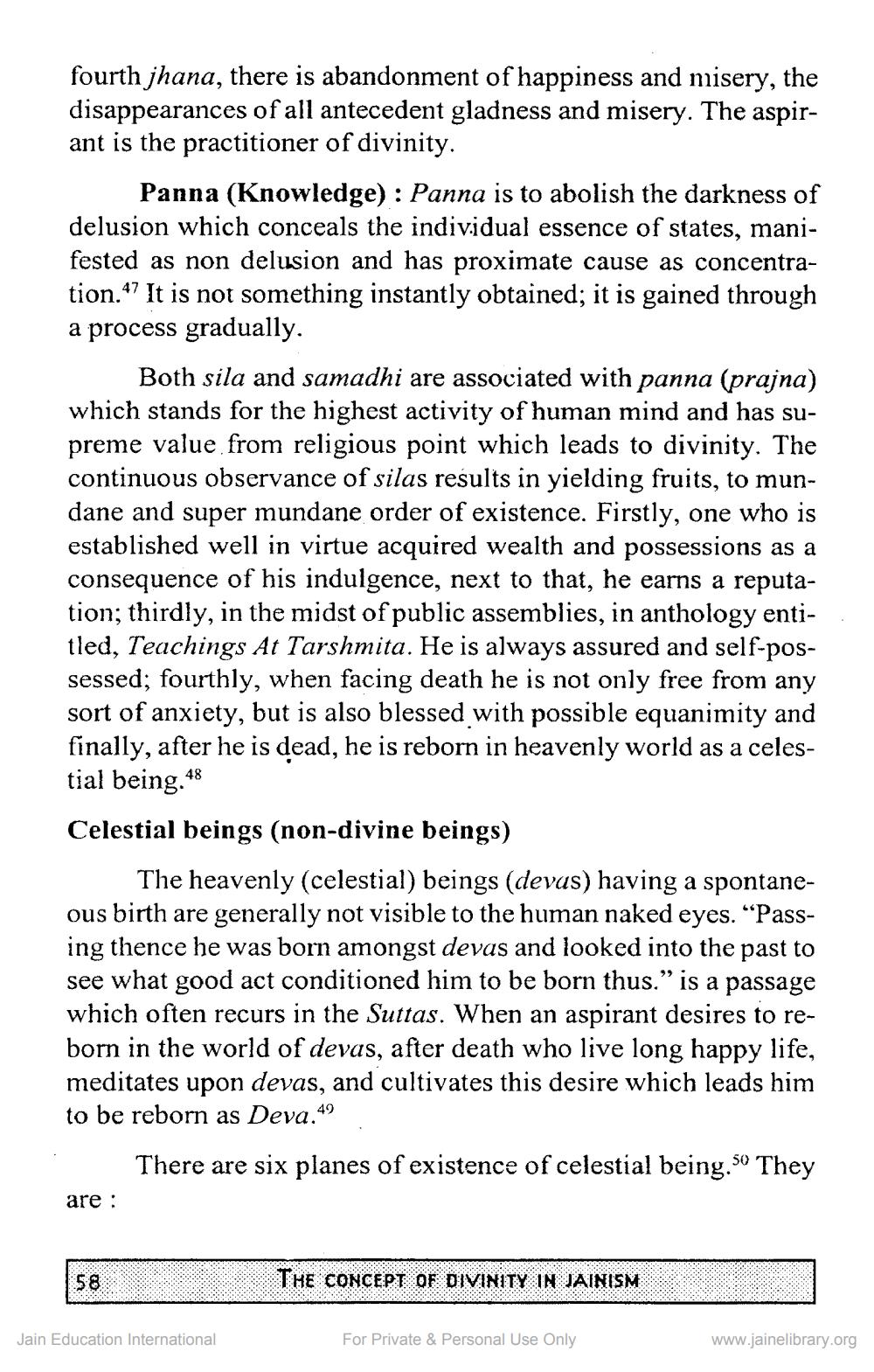________________
fourth jhana, there is abandonment of happiness and misery, the disappearances of all antecedent gladness and misery. The aspirant is the practitioner of divinity.
Panna (Knowledge): Panna is to abolish the darkness of delusion which conceals the individual essence of states, manifested as non delusion and has proximate cause as concentration.47 It is not something instantly obtained; it is gained through a process gradually.
Both sila and samadhi are associated with panna (prajna) which stands for the highest activity of human mind and has supreme value from religious point which leads to divinity. The continuous observance of silas results in yielding fruits, to mundane and super mundane order of existence. Firstly, one who is established well in virtue acquired wealth and possessions as a consequence of his indulgence, next to that, he earns a reputation; thirdly, in the midst of public assemblies, in anthology entitled, Teachings At Tarshmita. He is always assured and self-possessed; fourthly, when facing death he is not only free from any sort of anxiety, but is also blessed with possible equanimity and finally, after he is dead, he is reborn in heavenly world as a celestial being.48
Celestial beings (non-divine beings)
The heavenly (celestial) beings (devas) having a spontaneous birth are generally not visible to the human naked eyes. "Passing thence he was born amongst devas and looked into the past to see what good act conditioned him to be born thus." is a passage which often recurs in the Suttas. When an aspirant desires to reborn in the world of devas, after death who live long happy life, meditates upon devas, and cultivates this desire which leads him to be reborn as Deva.49
There are six planes of existence of celestial being.50 They
are:
58
Jain Education International
THE CONCEPT OF DIVINITY IN JAINISM
For Private & Personal Use Only
www.jainelibrary.org




